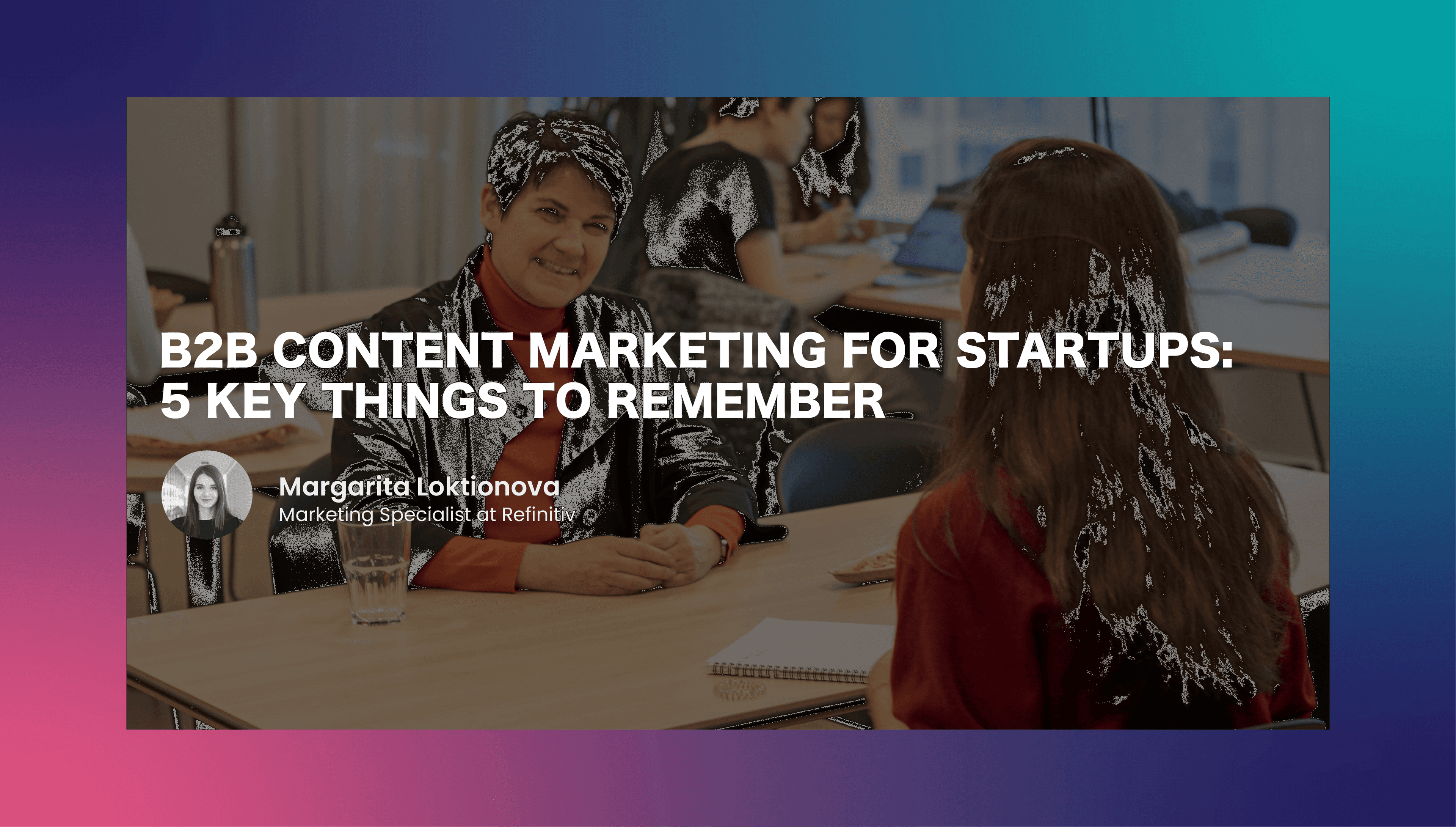B2B Content Marketing for Startups: 5 Key Things to Remember
Content is King in every industry, especially in B2B sectors. Find out how your B2B startup can be on top with these five best practices for your content marketing strategy.


Content Marketing Lead at Semrush
Content is King in every industry, especially in B2B sectors. Find out how your B2B startup can be on top with these five best practices for your content marketing strategy.
Content is King in every industry, and it plays an important role in B2B sectors. In many cases, content created by marketers serves as a guideline for industry professionals and their businesses. That’s quite a responsibility, isn’t it?
The role of content has further increased since the start of the global pandemic. According to a recent report by Pathfactory, digital content engagement upsurged after the COVID-19 lockdown. For example, assets views went up 40%, while the average number of sessions per visitor increased by 43% for content bingers and by 13% for non-bingers.
People are looking for information, help, and advice. It’s the content you create that will be there to support these needs. At the same time, this increased need for content is an excellent chance to boost your brand awareness and generate leads while telling your unique story and sharing expertise.
Now, let’s have a look at the five best practices you’ll need to follow to launch and grow a successful and sustainable content marketing strategy for your B2B startup (in fact, these apply to companies of any size).
1. Focus on Your Strategy and Your Customers
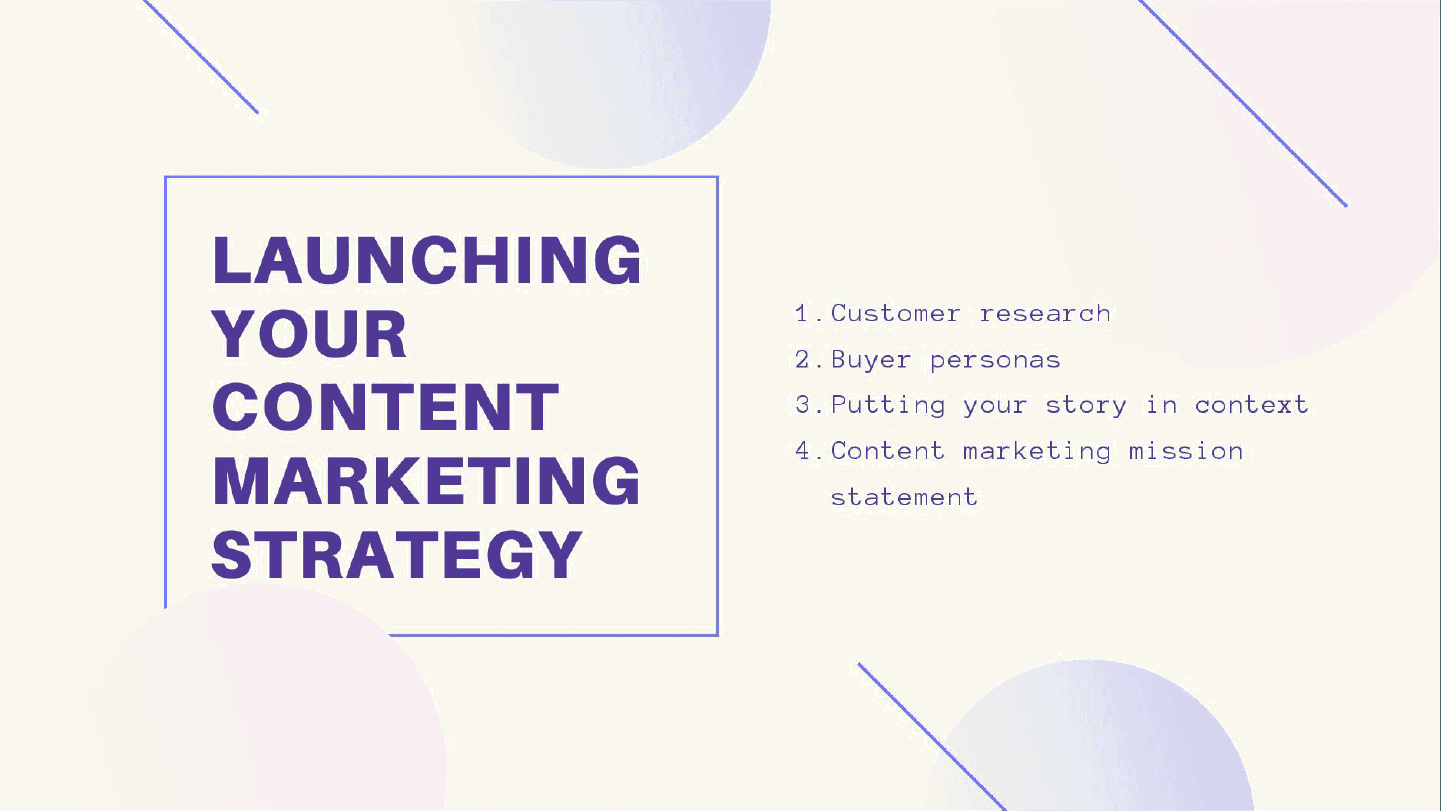
Companies of all kinds tend to make the same mistake: starting with tactics instead of strategy, relying on assumptions instead of customer research and pushing the product instead of promoting the story.
Before making decisions around your target keywords, before creating optimization strategies for your website and email marketing, make sure you know your buyer personas and understand what messaging will resonate with them.
The key steps to take are:
- Start with customer research - quantitative (such as surveys) and qualitative (in-depth interviews). Ask your customers about their goals, pain points and preferred ways of communication.
- Design buyer personas that will represent your target audiences and their preferred content themes, channels and formats.
- Come up with your content marketing mission statement. The following template can help you get started:
My company is where my [audience] finds [content] for [benefit].

Never underestimate the human element and the power of emotion in B2B. When we are first being exposed to a piece of information, the intuitive processing happens before the rational one.
Identify the emotions you want to trigger among your customers, employees, and other stakeholders. Think control, confidence and empowerment.
Remember that your content exists to solve your audiences’ problems while helping their companies grow and prosper. Use this paradigm as a compass for any content you create - from a downloadable ebook to an email.
Always ask yourself: how will it help my customers? How will it make their life better?
Even such technical areas as SEO becoming increasingly human-centric.
Are you looking to rank high organically? Create a piece of content that will answer 100% of the questions and concerns the reader might have about the topic.
Bonus tip: Link Building
It’s no secret that backlinks are still one of the key ranking factors. Backlinks are links pointing to your website from other authoritative websites.
So, what does it mean for B2B startups wishing to create a strong SEO strategy?
Target the content creators working in your niche. These can be bloggers, non-competitive businesses and reporters that generate backlinks pointing to your website.
These content types have unique data points, statistics, research, ultimate-guide experience, expert thoughts, and concepts they can’t find anywhere else. And if that’s the case, it will be valuable enough to share, linking it back to the source.
In other words, consider creating content that is both appealing to your niche and your customers.
For example, Hubspot’s 2020 Marketing Statistics Hub has over 13,000 domains pointing to it (!). Creating an enormous repository of marketing statistics helped them secure thousands of backlinks from content creators.
2. Idea Generation Is Not Always Hard. Content Production Is Not Always Costly
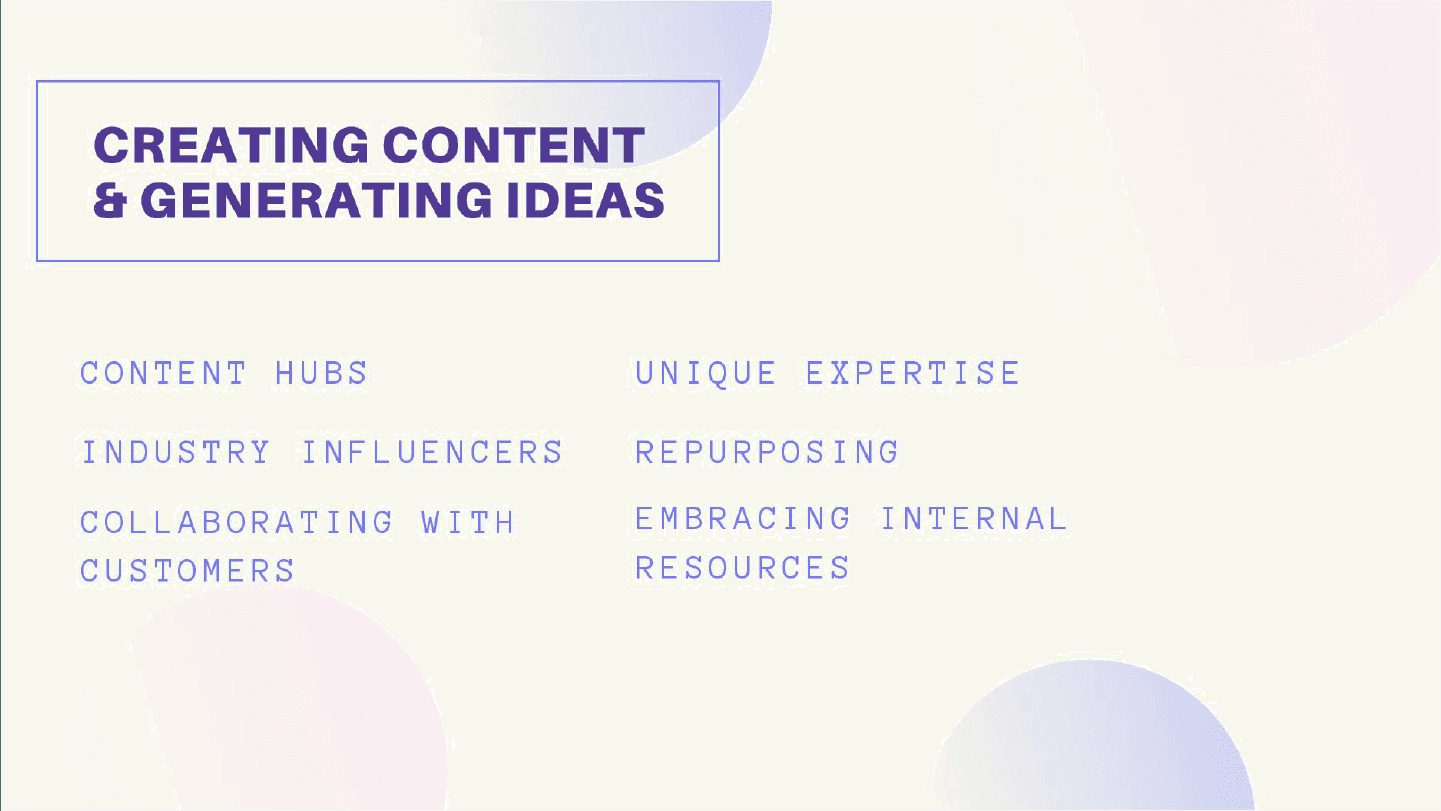
Many B2B startups get intimidated by the seemingly immense amount of work needed to produce great content. Not to mention the costs involved, which is always a sensitive topic in the startup world.
Luckily for us, there are many strategies your startup can use to spend less resources and create more value with B2B content marketing.
Here are a few of them:
- Organize your content into hubs.
Identify the biggest themes that will resonate with your personas. Then, start planning and creating content within those topic clusters - it will both make your life easier and boost your organic search rankings.
- Join forces with industry influencers and experts to create content.
B2B influencer marketing is always based on the mutually beneficial share of expertise and knowledge. In other words, it’s relatively easy to find industry experts who will be happy to create content for you. As long as your brand is in line with their beliefs and you also offer value in return (e.g., by making sure the influencer’s content gets enough exposure).
Case study: 2020 ESG Playbook by Refinitiv
Influencer and expert roundups are where you can really get the most out of influencer marketing and boost brand recognition and lead generation for your B2B startup. We have reached out to 18 ESG leaders and asked them to write 1-2 pages about the key industry trends they believed to be dominant in 2020.
The result? 1,900% ROI as of now and a potential ROI of 39,000% based on the current pipeline.
- Collaborate with your customers to create content (and build relationships).
Like B2B influencers, your customers are looking for ways to promote their thought leadership and get exposure for their brands. So why not invite leaders from your key accounts to record a podcast together, launch a webinar or write an article for you?
It’ll also help you build long-term relationships.
- Embrace your in-house talent.
You might be surprised by how excited your employees can get about creating content for your brand. Encourage them to share content ideas, write articles, host webinars, and podcasts.
- Use your unique [expertise/resources/knowledge/product] to create lead magnets.
Content marketing projects that get the maximum media attention and engagement are the ones that are unique to your industry.
For example, can you offer a small portion of your product or service for free and turn it into a lead magnet? If so, you should go for it!
This tool can be as simple as a list of statistics based on your product and customer insights you found from conducting research.
Some of other options for content pieces include:
- Thought leadership from the company experts
- Influencer roundup
- Aggregated expert insights (e.g. “What the Top 10 financial experts said about sustainable investing)
- Long-form ultimate guides
- Repurpose, repurpose, repurpose.
Last but not least, repurposing is one of the most important concepts in B2B content marketing. You don’t have to create new content every day. First, take a step back and see how you can use the content you’ve already produced in another way.
Have you written an article? Record a podcast on the same topic.
And don’t forget about creating a series of social media posts uncovering the key themes from this article.
Next, organize a webinar on the same topic and invite partners and industry influencers.
You get the idea.
3. Sales, Csms, Account Managers - Are All Part of Your Content Marketing Team
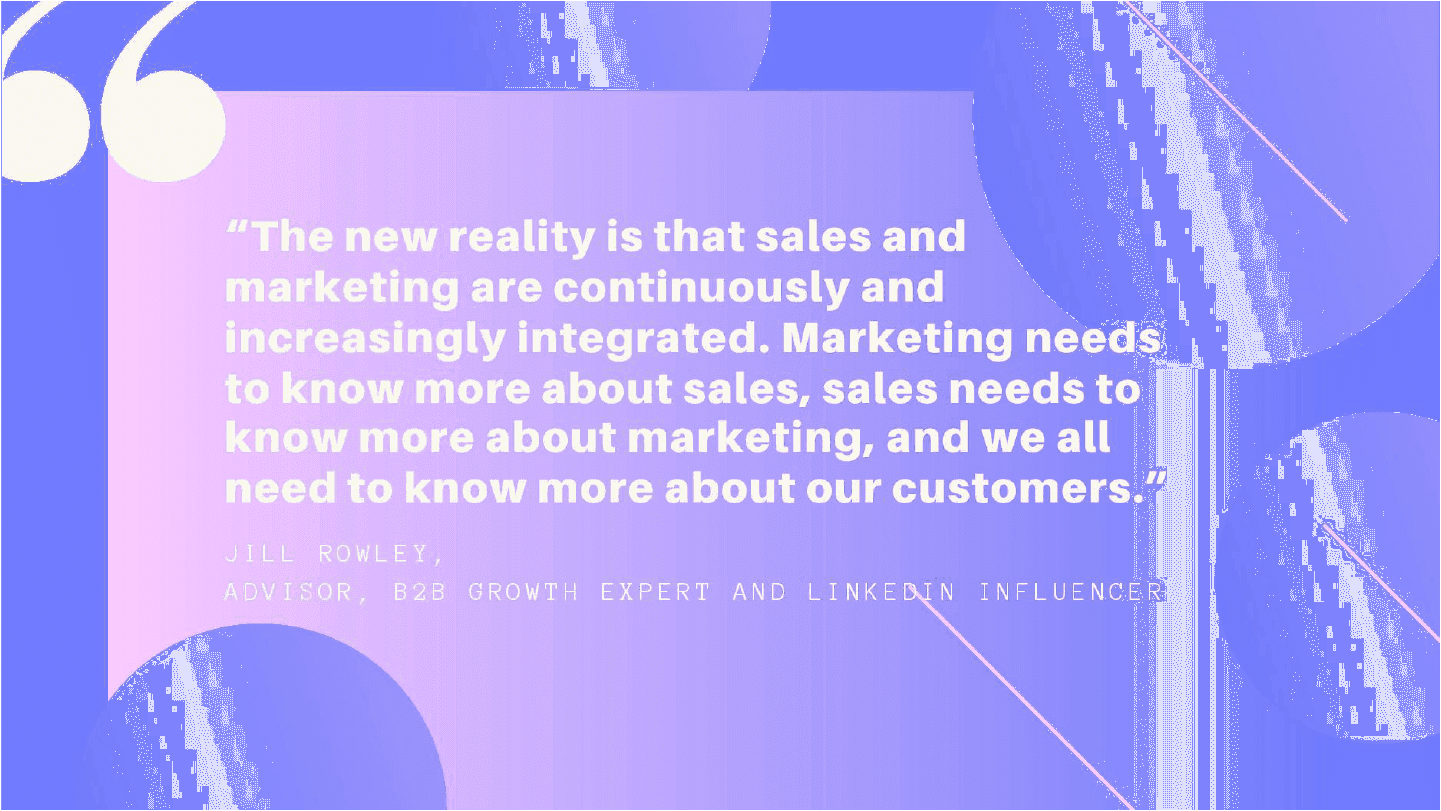
The disputes between marketing and sales teams have long been a big issue in B2B companies. Yet, it’s time to move away from it. Or, even better, you can build your startup differently - from the start.
Think about it. Where do the most important insights and content marketing themes come from? The people who talk with your customers on a daily basis - your salespeople, customer success experts and account managers.
In other words, marketing and sales collaboration is essential for several reasons:
- It can help you understand your buyer personas 10000x times better
- It can turn into a powerful idea generation tool for your content marketing
- It will also support your product marketing and your business model in general
As suggested by Marcus Sheridan during the 2020 HubSpot Inbound Conference, you should even incorporate this idea into your sales employees’ job descriptions and job titles.
The sales team should truly feel they’re part of the marketing team working towards the same goal: helping customers and growing your business.
You also need to make sure there are regular processes for promoting this collaboration and a leadership role accountable for tracking progress.
You can start small by establishing regular calls and creating a platform for sharing customer insights.
Finally, make sure that your marketing team is making the most out of the information provided by the customer-facing teams. For example, it’s important to keep updating messaging documents and buyer persona profiles with sales-driven insights. It’s also key to incorporate those insights into content plans and calendars.
4. Analytics, Data, and Martech Are Your Best Friends
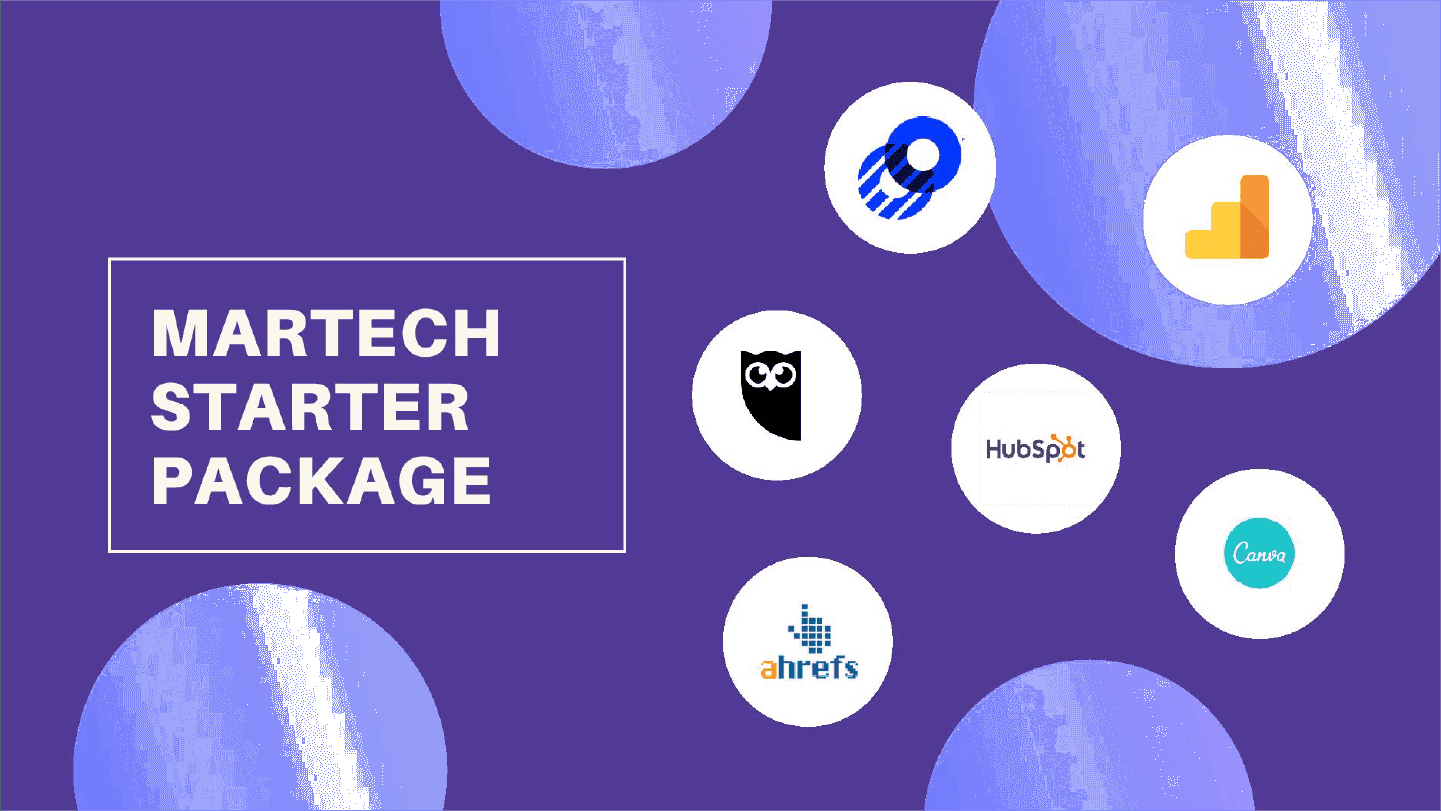
It’s not enough to just produce content - it’s also about how you will use it to nurture your customers. By embracing the marketing automation tools like HubSpot (I really am a big fan), you’ll be able to create advanced and personalized nurture workflows.
The best part? The software is really intuitive and easy to set up. It includes everything from CRM, email marketing and social media planning, to building pages, forms and dynamic content.
Note that you can request special startup rates and pay less for HubSpot as your business is growing.
Other tools you might want to use:
- Alternative marketing automation tools: AutopilotHQ
- Social media planning: Hootsuite
- Design/Video tools: Canva and Animoto
- SEO tools: Ahrefs and SEM Rush
- CRO (Conversion Rate Optimization) tools: Google Optimize and Optimizely
- Analytics tools: Google Analytics, Google Data Studio, and heatmap software providers
- Landing page builders: Unbounce and Instapage
- CMS: Webflow and WordPress
Next, make sure you are constantly measuring performance and setting KPIs for your B2B content marketing campaigns. Yes, any content marketing piece and campaign can (and should) be measured. All you need to do is establish some basic processes.
Some of the best techniques for measuring and setting KPIs are:
- Use your analytics software and CRM to track the number of leads from your content offers (forms, pages, etc.). Then compare these results to metrics demonstrated by other channels.
- Analyze the number of media mentions, social media engagement and other metrics impacting your brand awareness.
- Conduct surveys to determine how content adds to your brand name recognition and brand sentiment.
- Keep track of key metrics, such as website traffic, email engagement, backlinks, etc.
Here’s a great article exploring the most important engagement metrics (See? Databox has just acquired a backlink from a content creator!)
5. Collaboration Is Also Key When It Comes to Promoting Your Content.
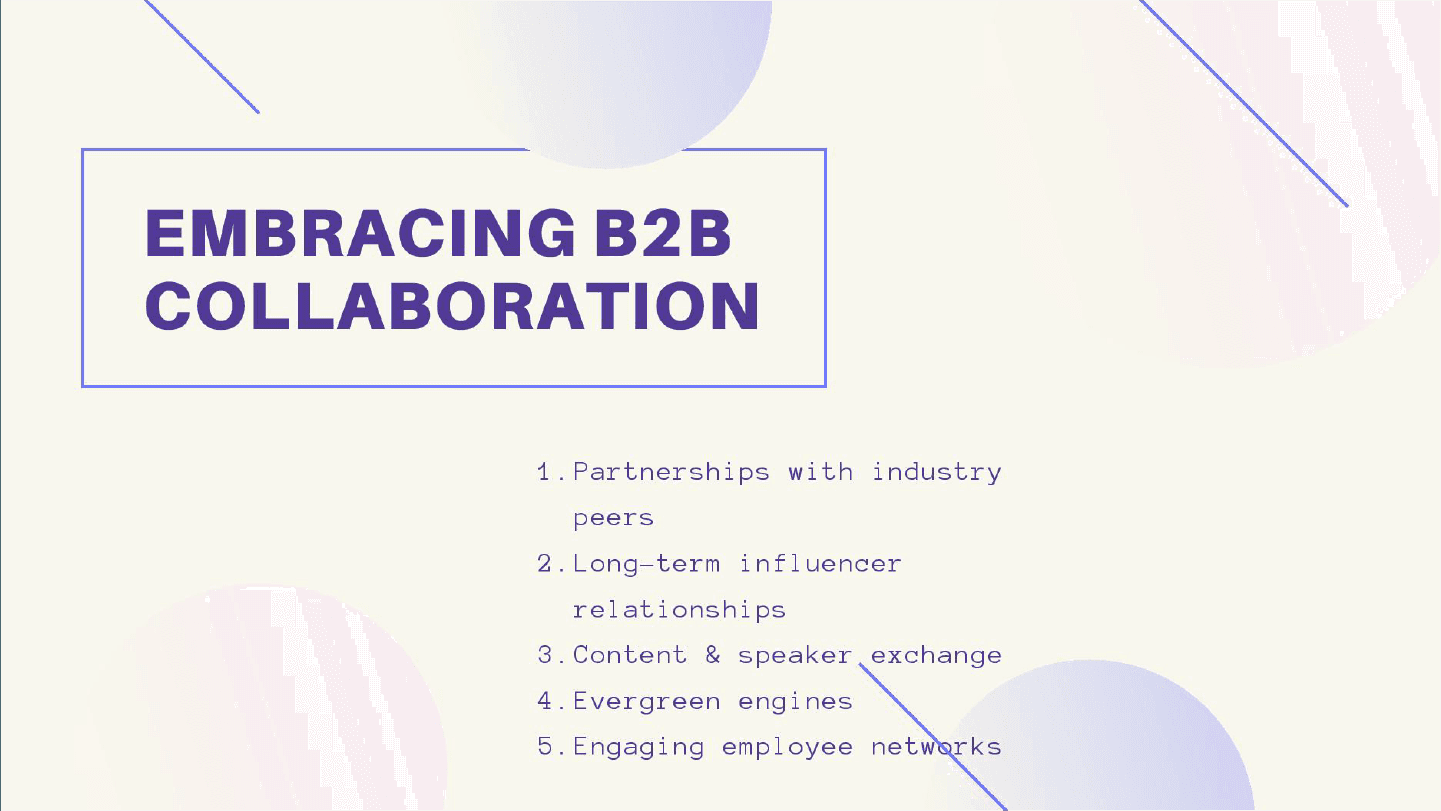
Finding partners among your industry peers, influencers, and customers is key for your content marketing strategy. It’s also essential for promoting your campaigns.
Take this case study, for example: The Refinitiv Sustainability Perspectives podcast
We launched the RSP podcast in September 2019, and it’s been acting as a powerful tool for creating relationships and building partnerships.
The benefits for us? We are getting backlinks, influencer sharing, and additional content, among others.
The benefits for our speakers? They are getting the exposure that will help them boost their careers, position themselves as thought leaders, and promote their companies.
Consider joining forces with innovative and non-competitive businesses in your sectors to increase reach. You can also establish long-term partnerships with media outlets and content creators to improve your content’s visibility.
Conclusion
Start building your stellar B2B content marketing strategy today.
Content marketing can become a superpower of your startup - there’s no limit to what you can achieve. Embrace the customer-centric approach, make the most of the resources you already have, and unleash your creativity. New opportunities await you.
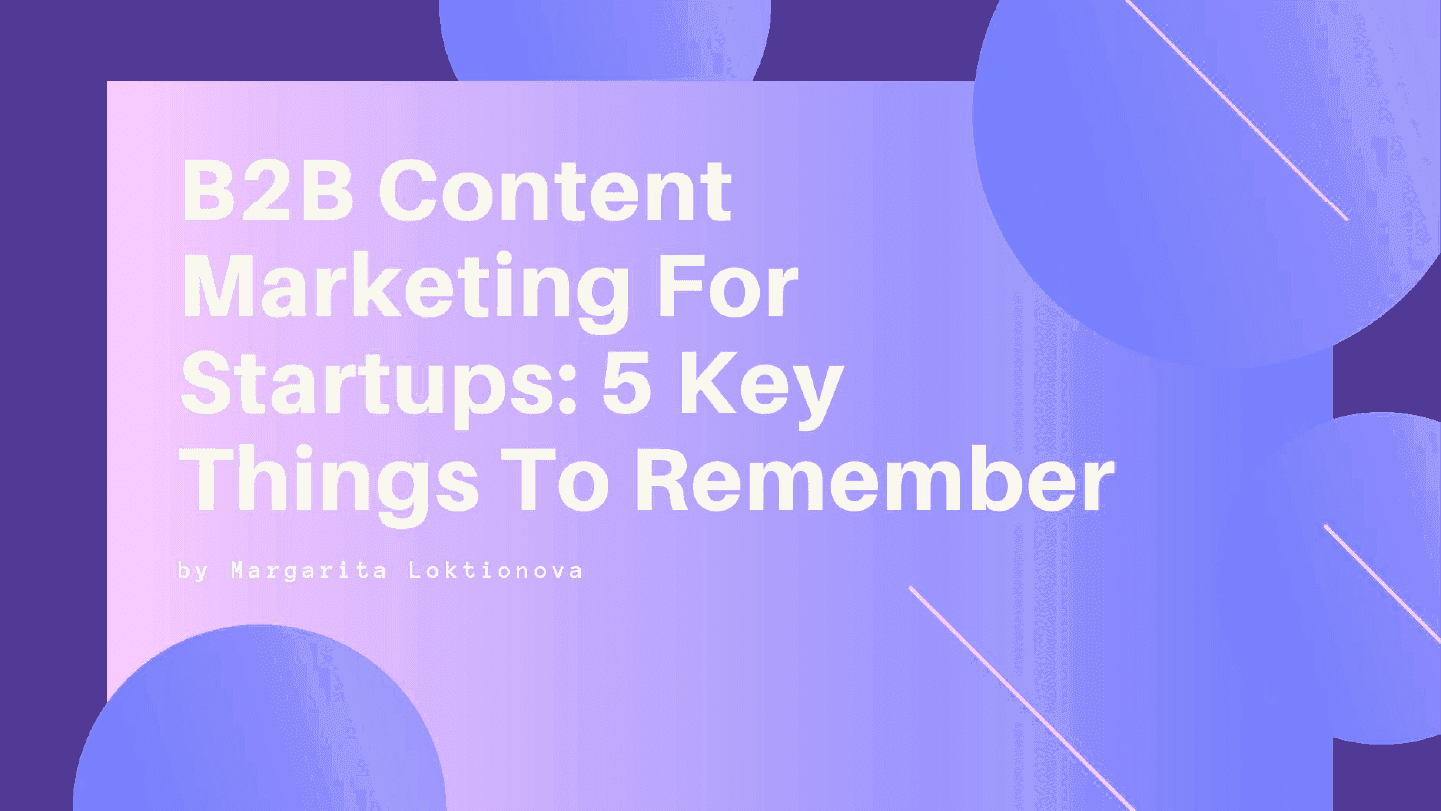
By Margarita Loktionova, Marketing Specialist at Refinitiv (ex. Financial & Risk by Thomson Reuters) and Growth Marketing Mentor based in New York.
About Margarita:
Margarita is a New York-based content marketing expert working in the B2B SaaS tech industry. She is currently covering content and campaign management at Refinitiv, one of the world’s biggest financial data providers. Before that, Margarita was leading digital marketing and content marketing at startups in Barcelona and international advertising agencies. She also holds two MBA degrees in Marketing.
Contacts:
Connect with me on LinkedIn: https://www.linkedin.com/in/margarita-loktionova/
Thanks for reading
If you’re interested in further growth, take a look at our website to learn what your future could look like at Harbour.Space. Lastly, get in touch with us at hello@harbour.space to let us know your thoughts!
